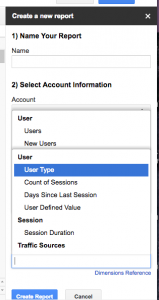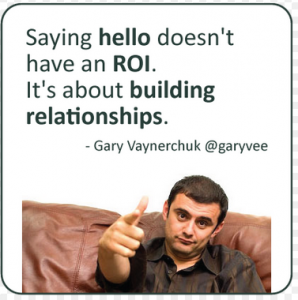The job interview can be a minefield.
Even seemingly simple job interview questions work on several levels – what you say, how you say it and the qualities your answer demonstrates.
This can leave you feeling adrift, especially if it’s been several years since you’ve had to interview. How do you put your best foot forward? What’s that job interview question trying to get at?
Having spent more than a decade in HR and Recruitment, I’ve asked more than my fair share of tricky interview questions, and hired people into senior roles (or not) based on their answers … so I know what the person across the desk from you is hoping to hear.
If you’re serious about nailing your next job interview, here are some of the trickiest questions you should look out for.
#1 “Who doesn’t like you? Why is that? What would they say about you?”
No one is liked by everyone, unless they’ve never done anything of note.
The interviewer is evaluating your ability to have a tangible impact on their business – and that means hiring someone who has made difficult decisions in the past. Far from admiring your universal likeability, dodging the question here will imply you’re a people-pleaser who might struggle to make the decisions that count.
They’re also evaluating your ability to empathize. The most effective leaders are highly empathetic, their compassion and understanding allowing them to build trust with stakeholders and employees alike.
A great response should outline the negative implications of a leadership decision you’ve made in the past, justify why you made the decision while accepting culpability for any unforeseen negative consequences that resulted.
“I was leading the department merger in Brisbane in 2007, and I was mandated to bring costs down significantly. I implemented a broad process improvement strategy to create efficiencies in production, which led to us reducing our team by 3. It was the right decision for the business, but it was a difficult time for the people we had to let go. I wrote them glowing recommendations and made myself available whenever needed to help ease the transition, but that couldn’t have been easy”.
#2 “Is there anything about me you don’t like?”
Interview questions like this are designed to be disarming and slightly confrontational, to snap candidates out of what Vitals CEO Mitch Rothschild calls the “interview face”.
Your response to this question shows your interviewer how you respond under pressure, in a potentially confrontational business environment.
An ideal answer would show you to be calm and composed, analytical, and able to deliver criticism tactfully. Don’t avoid the question, but make sure to back up your points with solid reasoning.
“I’ve found in the past that I tend to gel more closely with managers who allow me the space to run with an idea. When you were talking about the infrastructure project the department head is leading, you mentioned a lot of daily check-in time, which is more hands-on than I’m perhaps used to.”
#3 “Tell me about your biggest professional mistake.”
This question is not about the mistake itself, but how you respond to it.
Everyone makes mistakes, but how you cope is one of the biggest predicators of your future success on the job. Will you blame someone else? Will you struggle to make decisions because you’re paralyzed by the fear of making a mistake? Or will you accept responsibility, fix what you can and learn from the situation for the next time?
The best responses here will explain your mistake in context, explain how and why the mistake was made, outline anything you did to solve the problem, and detail any lessons learned.
“I was leading the packaging design for the new SoniCare product in May, and I felt strongly that we should change colour scheme. Our main competitors had just launched in those colors and I felt we should differentiate. The product didn’t do as well as expected after launch so I created a series of consumer feedback surveys to dig deeper.
It turned out that the new colour scheme was the major cause – consumers weren’t identifying the brand easily and sales were suffering. I worked with the marketing team to design a campaign focusing on the new colors to help raise awareness, but it was additional budget we needn’t have spent. Now I put resource into split-testing, long before final design decisions are made”
#4 “Talk to me about this career gap on your resume.”
A question many of us cower in the face of, but there’s no reason to. Having a career gap is far from unusual. Explain the gap with confidence and frame it as a strength, and the interviewer will see it as one.
A great answer here will highlight transferable skills, demonstrate that you’ve kept the relevant skills up to date, and emphasize your commitment to returning to work now.
“We’d just had our second child, and my partner was working full-time so I wanted to be at home to raise the children. If I thought Marketing was a full-time job, this was full-time and then some. I was balancing priorities at home, organizing schedules for our eldest and managing the family budget – all while getting up 3 times a night. I’ll never see a heavy workload in quite the same way again!
I missed the buzz of the office though and I continued working as an ad hoc consultant for my old company throughout this time. I’ve been considering returning to work for a while now, and now my youngest has reached school age I’m excited to hit the ground running again.”
#5 “What’s your biggest strength, and biggest weakness?”
This first part of the question is a gift question as it gives you the perfect opportunity to deliver your elevator pitch.
Your elevator pitch should be a concise, 30 to 60 second story that encapsulates your unique value proposition in an engaging way. Done well, your elevator pitch sums up every strength you have, tying it together into a single, powerful statement.
The second half is more challenging. We’ve all heard the advice – offer a strength in disguise, or some triviality that can hardly be called a fault. Something along the lines of “Although I’m a passionate advocate for the cause, I struggle to talk about myself”, or “I can be overly dedicated to work and end up working very long hours”.
I can see the eye roll from here: avoid canned responses.
They seem insincere because they usually are. Instead, deliver an engaging, thoughtful and measured response that genuinely assesses your weaknesses, explains a situation in which that weakness was felt and show how you mitigated it, then and in the future.
“Sometimes I find it difficult to delegate, particularly if the stakes are high. Recently we had to deliver a large change project and the IT Manager under me was relatively new on the job. We both ended up getting frustrated – he felt I was breathing down his neck, and I felt he wasn’t doing things as I’d have done them.
We decided to implement a bi-weekly review so I’d know I was being kept in the loop, but he’d be left to get on with it otherwise. Now I always look to implement a feedback process like that, even when it pushes me out of my comfort zone slightly”.
#6 “Explain the Internet to a child / an alien / someone who’s never heard of it.”
Questions like this aren’t designed to test your knowledge of the Internet, or any other complicated thing you’re asked about. You’re being assessed on your ability to think on the spot, and to communicate simply and with clarity.
If the subject matter is something relevant to your industry, your level of expertise is obviously important but generally what you say isn’t as important as how you say it.
The most effective leaders don’t coerce – they inspire collaboration in pursuit of a common vision. Achieving this requires top-tier communication skills, in order to secure buy-in, commitment and loyalty.
Aim to embed your explanation with relatable analogies to clarify your point, and ask questions to ensure understanding.
“The Internet is like a giant directory of information, but it doesn’t exist on paper. Think of it as being stored on computers instead. You can search it in the same way you would leaf through a book, or a dictionary, to find what you need – but much faster. You can use the Internet to communicate directly with other people without being there in person, similar to calling someone on the phone but through a computer. Does that make sense?”
#7 “Why are you leaving your current role?”
Deceptively simple, your interviewer is looking for evidence that you’re not applying on a whim, that you have a clear career mission in mind and that this application ties into that.
Don’t rely on cookie cutter responses – “I’m seeking professional growth”. Instead, your answer is an opportunity to reinforce your professional story.
Frame the new role as a logical step. As CIO point out, “transition into speaking about the new role, and how it not only capitalizes on your pre-existing capabilities, but permits your continued growth and development”.
“It comes back to what I outlined earlier. I have 15 years’ experience leading multi-million dollar change projects, and a huge part of that has been working in challenging environments during M&A transition. Having successfully led COMPANY through the largest merger of the past decade and secured 75% revenue growth over 6 months, the waters are much smoother sailing now and I’m seeking a new challenge to navigate.”
Conclusion
Synergy is what gets you hired. The company has challenges/objectives, and they’re looking to hire the person who can best overcome/meet them.
The interviewer is assessing you against those criteria – exploring whether you’re the right candidate to fulfill those goals.
Cultural fit is certainly a part of the hiring decision, but it’s an aspect you have little control over (as long as you portray yourself authentically. You are who you are, and they are who they are). The main thing you can control is your ability to communicate synergy by aligning your USP with the objectives of the company.
That’s what’s at the root of many of these tricky job interview questions – demonstrating in the most effective and authentic way who you are, what your strengths are, and how you can drive positive change on the job.
Business & Finance Articles on Business 2 Community(36)






